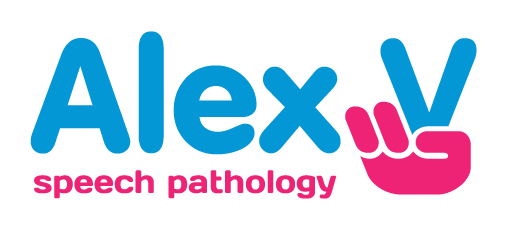There’s no denying that every child develops at a different rate; whether that is physically, mentally or socially. However, something to be aware of is that there are certain milestones that children should be reaching in order to ensure they’re developing at a healthy rate. One of the most important milestones in a child’s life is learning how to speak. From forming sounds to babbling, occasionally saying simple words and learning how to form sentences- a child’s speech development is a long journey. However, some children go through this process at a slower rate than other children, otherwise known as Late Talkers. It can be difficult to know what timeframe constitutes a late talker, especially if it’s your first child. At Alex V. Speech Pathology, we have a strong interest in children’s speech therapy, including treating late talkers. Therefore, we’re providing a guide below on how to tell if your child may be a late talker.
What is a Late Talker?
A late talker is usually a child between 1 ½ years to 2 ½ years that might be able to comprehend language, but struggle to speak and express themselves verbally. These children may not necessarily have any issues with their motor skills, cognitive skills or social skills, but their delayed language development may distract from the development of these. While late talking isn’t always a significant cause for concern and is simply late talking, it’s still important to seek help for your child as a preventative measure.
Children’s Speech Milestones
The following milestone guidelines can be used to determine whether or not your child’s language ability is appropriate for their age. If your child has not reached these milestones by this age, we highly recommend contacting the friendly team at Alex V. Speech Pathology to book in for a consultation.
By 1 Year & 6 Months
By this age, your child should be able to speak approximately 20 simple but different types of words including nouns, verbs, prepositions, adjectives and social words such as “hi”, “bye”, “eat”, “go”, “up”, “down”, “sleepy”, “cold.”
By 2 Years of Age
By the time your child is 2, they should be able to use at least 100 words and combine at least two words together that aren’t just memorised combos such as “bye bye,” “all gone” or “where you?”. Unique word combinations are phrases such as “cat gone”, “hat on”, “bye bye” or “eat apple.”
You can learn more about developmental milestones for speech and language here.

Will They Grow Out of It?
A difficult question; the answer to this is simply “maybe.” There is no way to tell if your child will definitely grow out of their late talking phase until they either do or don’t. For this reason, it’s important to seek help as soon as you notice delay in your child’s language development to give them the best chance of recovery. While there are no symptoms that say your child definitely won’t recover from their late talking, there is a list of risk factors below that might suggest they’re likely to continue having language difficulties. These include:
- Quiet as an infant
- History of ear infections
- Limited consonant sounds
- Doesn’t imitate words
- Difficulty playing with friends
- Uses mostly nouns
- Family history of speech delay and anything related
- Comprehension delay for age
- Doesn’t use many gestures to communicate
The Next Step
If you think your child may need help with their late talking, you might be wondering what to do next. The best thing to do is book your child in for a consultation so that they can begin their speech therapy journey as early as possible to prevent further speech issues. At Alex V. Speech Pathology, we understand that clinical environments can be intimidating for children, making it difficult for the parent to bring them to appointments. Therefore, we’ve made our clinic as “non-clinical” as possible, decorating the space with bright colours, toys and pictures to help your child feel at ease. We also spend time building a positive relationship with you and your child to create trust and tailor the sessions directly to their interests.
To book a consultation, please contact Alex V. Speech Pathology on (07) 3217 7037.

